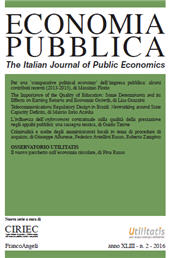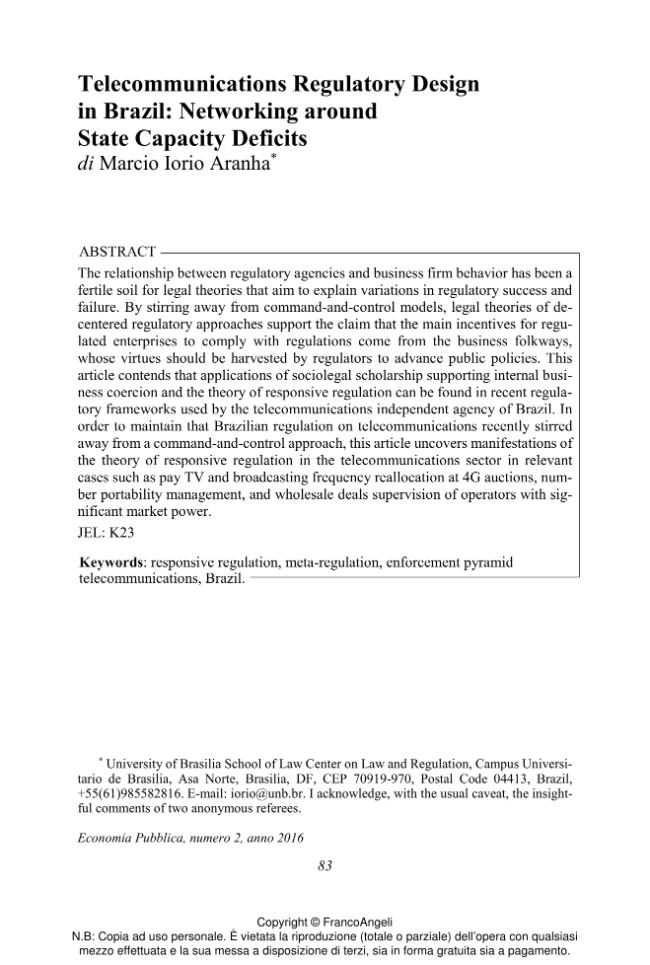Telecommunications regulatory design in Brazil : networking around state capacity deficits
83-105 p.
The relationship between regulatory agencies and business firm behavior has been a fertile soil for legal theories that aim to explain variations in regulatory success and failure. By stirring away from command-and-control models, legal theories of decentered regulatory approaches support the claim that the main incentives for regulated enterprises to comply with regulations come from the business folkways, whose virtues should be harvested by regulators to advance public policies. This article contends that applications of sociolegal scholarship supporting internal business coercion and the theory of responsive regulation can be found in recent regulatory frameworks used by the telecommunications independent agency of Brazil.
In order to maintain that Brazilian regulation on telecommunications recently stirred away from a command-and-control approach, this article uncovers manifestations of the theory of responsive regulation in the telecommunications sector in relevant cases such as pay TV and broadcasting frequency reallocation at 4G auctions, number portability management, and wholesale deals supervision of operators with significant market power. [Publisher's Text].
Fa parte di
Economia pubblica : XLIII, 2, 2016-
Articoli dello stesso fascicolo (disponibili singolarmente)
-
Informazioni
Codice DOI: 10.3280/EP2016-002003
ISSN: 1972-5566
MATERIE
PAROLE CHIAVE
- Responsive regulation, meta-regulation, enforcement pyramid telecommunications, Brazil



